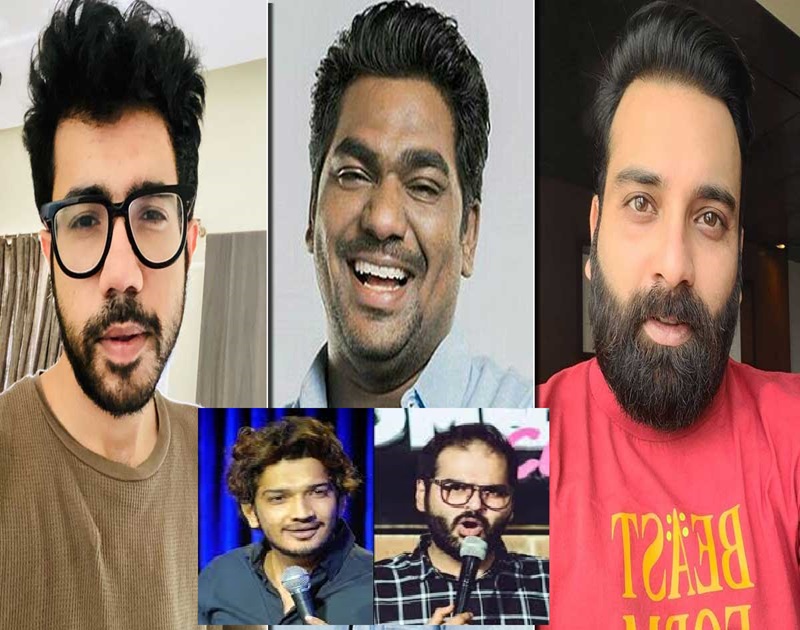Over the past decade, stand-up comedy has witnessed an extraordinary surge in popularity in India. With the advent of social media and online platforms, comedians now have a wider reach, connecting with audiences from all walks of life. Indian audiences have embraced this new form of entertainment, making stand-up comedy shows a regular part of their entertainment choices.
In recent years, India has witnessed an unprecedented surge in the popularity of stand-up comedy, catapulting comedians into overnight stardom. Names like Zakir Khan, Munawar Faruqui, Kunal Kamra, Anubhav Singh Bassi, and Abhishek Upmanyu have become household favorites, commanding massive followings and adulation. But what lies behind this meteoric rise? Is it merely the result of comedic talent, or are there deeper societal forces at play?
The Zakir Khan Phenomenon
Zakir Khan, often hailed as the “Sakht Launda” of Indian comedy, epitomizes the overnight fame experienced by many comedians. His relatable anecdotes about middle-class life struck a chord with audiences, propelling him to stardom seemingly overnight. Khan’s rise from performing at small venues to selling out stadiums reflects the power of social media in amplifying the voices of talented individuals.
Munawar Faruqui: Controversy and Fame
Munawar Faruqui’s journey to fame took a different trajectory, marked by controversy and resilience. Despite facing legal challenges and social media backlash, Faruqui’s unapologetic humor resonated with a segment of the audience, earning him a dedicated fan base. His story highlights the complexities of navigating free speech and censorship in India’s comedy landscape.
Kunal Kamra: The Voice of Dissent
Kunal Kamra’s outspoken political commentary has made him a polarizing figure in Indian comedy. While some applaud his courage in speaking truth to power, others criticize him for crossing societal boundaries. Kamra’s rapid ascent to fame underscores the role of comedians as agents of social change, challenging conventional norms and ideologies.
Anubhav Singh Bassi: A Voice for the Vernacular
Anubhav Singh Bassi’s success demonstrates the growing appetite for vernacular comedy in India. His use of regional dialects and cultural references endears him to audiences across linguistic divides. Bassi’s popularity reflects the diversity of India’s comedy scene and the importance of representation in entertainment.
Abhishek Upmanyu: From YouTube to Stardom
Abhishek Upmanyu’s journey from YouTube sensation to mainstream success exemplifies the changing dynamics of Indian entertainment. With millions of followers on social media, Upmanyu leveraged digital platforms to bypass traditional gatekeepers and reach a global audience. His success story serves as inspiration for aspiring comedians seeking to carve their niche in the industry.
Societal Impact and Reflection
The overnight fandom of stand-up comics in India reflects broader societal trends and shifts in media consumption patterns. As audiences crave authenticity and relatability, comedians fill the void by addressing taboo topics and challenging societal norms. However, this newfound fame also comes with its share of challenges, including scrutiny, censorship, and the pressure to maintain relevance.
Comedy in the Digital Age
The rise of stand-up comedy in India is emblematic of the democratization of entertainment in the digital age. Through platforms like YouTube, Instagram, and Netflix, comedians have found unprecedented opportunities to connect with audiences and build loyal fan bases. While overnight fame may seem like a stroke of luck, behind every successful comedian lies years of hard work, perseverance, and a deep understanding of their audience’s psyche. As India’s comedy scene continues to evolve, one thing remains clear: the laughter it inspires transcends boundaries and brings people together in shared moments of joy and reflection. #hydkhabar

